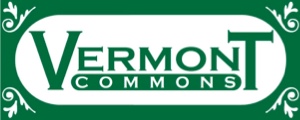At the September meeting, we discussed community initiatives and committees, asked for volunteers, and learned how to keep ourselves safe from identity theft with our Speaker, J.F. Webb, Sr. Police Officer/Investigator.
The meeting kicked off with introductions and a report from the treasurer. We have 73 neighbors who have paid dues, and we remind all of you to do so either via check or through our PayPal link. New green signs have been ordered and will be placed throughout the neighborhood to announce meetings. We’re also focusing on posting meeting announcements in the newsletter and on Nextdoor.
Neighbors Adrianna and Linda have started a constable group to learn more about Constable Patrol. There’s a meeting on Tuesday, October 27th at Café Ginger from 6:30pm to 7:30pm to help organize the plans. Michael Hawash, attorney and lead Constable Patrol organizer for his own neighborhood, as well as Constable Alan Rosen will attend and educate us about how to set up a neighborhood Constable Patrol.
Neighbor Cay will set up a committee to explore ways to collect funds from developers and construction companies to help pay for damage to roads and surrounding areas due to construction. She’ll be in touch soon with further plans.
We need volunteers! A sign up sheet went around the meeting, seeking volunteers to chair and host the coffee meet ups, organize National Night Out (in October), recruit block captains, and ask for holiday party chair and committee members. If you’re interested, let us know!
JF Webb joined us for the presentation on protecting identity, credit, and money. He’s a native Houstonian and has been a cop for about 29 years, focusing primarily in white-collar crime from the financial crimes unit of HPD, which has 8 full time investigators each with 20-30 cases.
Identity theft and identity fraud refer to various activities in which someone obtains another person’s personal data and then uses it to commit a crime, typically for economic gain. When someone steals your social security number and works under it, it is a crime but you as the holder of the number get the social security benefits. When this fraud happens, it’s considered tampering with a government document, which is a felony.
Identity theft crimes include:
- Possession and use of identifying information
- Credit and debit card abuse
- Check fraud – check with insufficient funds, Harris County DA’s office
- False statement to obtain credit (this isn’t seen a lot right now)
Criminals can steal wallets and purses, find personal information in your home, steal your mail including pre-approved credit offers and tax information, and complete a change of address form. All of these activities put your identity and money at risk.
One crime we all need to be mindful of is check forgery. Officer Webb said it’s so easy for someone to fake a check because all anyone needs is the routing and account number, then use the numbers and make new checks. When you bank and send checks online, you can track and approve those transactions, maintaining better records that way. It is possible that bank accounts get hacked, but that’s much harder than forging a check. Officer Webb indicated that online banking is more secure than using paper checks.
Safer options to checks include:
- Credit cards with a guarantee that the company will reimburse you and cancel card
- Pre-paid credit cards with a specific balance on it
Debit and credit cards are at risk to theft through skimmers. Skimmers are legal devices that pull credit card information off the card when it’s swiped. There are some ways to protect against these devices. At ATMs, shake the card reader before you put you card in – if it moves, it’s a skimmer and can pull your information, plus PIN cameras at ATMs, which are little boxes on the exterior of the screen/polymer covered security camera, can capture your PIN. Cover the keypad and be mindful of any irregularities at ATMs.
Chip and PIN system – another secure system the U.S. is moving toward
- Many places in Europe use these
- October 2015 will bring a change in the market where every card company should provide these
- When the chip and pin system goes in, the merchant becomes responsible for transactions
- This system is expensive for merchants but supposedly lowers credit card fraud 40-80%
Preventing fraud involving checks:
- Limit the number of checks you write
- Always consider money orders
- Never give a check to someone unless you trust them with the money you have in the bank
- If you have POA for an elderly relative, check the accounts like you check your own accounts
Overall preventing identity theft:
- Limit access to personal information and do not disclose unless absolutely necessary
- Examine bank accounts and credit card statements monthly
- Obtain credit reports regularly and examine: annualcreditreport.com
- Call 1-888-567-8688 to stop pre-approved credit offers

